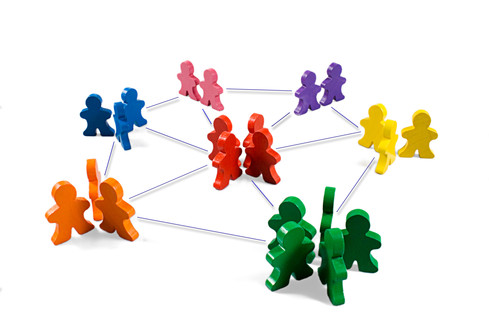Power and politics are inextricably interwoven with the fabric of an organization’s life. In any organization, at any given moment, a number of people are seeking to gain and use power to achieve their own ends. This pursuit of power is political behavior. Organizational politics refers to the activities carried out by people to acquire, enhance and use power and other resources to obtain their preferred outcomes in a situation where there is uncertainly or disagreement. One great organizational scholar, Tushman defined politics, ‘as the structure and process of the use of authority and power to affect definition of goals, directions and the other major parameters of the organization. Decisions are not made in rational or formal way but rather through compromise accommodation and bargaining.’
Techniques of Organizational Politics
The most commonly used techniques of political behavior in organizations are:
- One technique of political behavior is to control the dissemination of critical information to others. The more critical the information and fewer the people who have it, the stronger is political power base of those who possess these information.
- Controlling lines of communication is another political technique related to the flow of information. People who have some control over lines of communication can yield considerable political power. For example, the secretary may have considerable power in deciding who sees the boss and who does not at a given time. She may use this power in favoring those whom she likes and frustrating those against whom she may have it grudge.
- Controlling the agenda also gives a person power over information. The person who controls a meeting’s agenda, for instance, may consistently put a particular item last on the list and then take up time so that meeting adjourns before considering the item.
- The opinions of outside experts and consultants often curry much weight in organizations and many consultants can be swayed by political interests. Consultants know who is paying them and even honest consultants are likely to give opinions consistent with those of their employer. Hence, hiring an outside consultant can be a clever political move.
- Game playing can range from fairly innocent to very manipulative. It involves people doing something insincere, but not outright illegal or unethical to gain political ends. For instance, a manager who does not want to answer a committee’s tough questions may, for instance, avoid meeting by going out of the town on the day of meeting.
- Image building is creating positive impression reflected by the personality, appearance and style. Some of the factors that enhance a preferred image consist of being well dressed, having a pleasant smile, being attractive, honest, sociable and loyal to the organizational interests. In addition, always project an image of competence and self-assurance.
- Building coalitions or alliance is another technique of gaining political power. It is necessary to have the alliance with the right people. Coalition building can become simply a matter of quid pro quo, ie. I will support you if you will support me.
Managing Organizational Politics
Though it is virtually impossible to eliminate political behavior in organizations, it is possible to reduce it, if a manager understands the reasons for it and the techniques of political behavior. Politics when carried to the extreme can damage morale, create enemies, destroy loyalty, damper co-operative spirit and much time and energy is spent planning attacks and counter attacks which are detrimental to organizational health. Accordingly, combating organizational politics must be undertaken by the top management and some of the steps that can be undertaken are: open communication, reduction of uncertainty and creating awareness.
Open communication can reduce the political activity if all employees know how and why an organization allocates resources, the employees will be likely to put their energy into meeting the stated criteria for gelling resources rather than into political activity. If the organization is open about why it made particular decision, then employees will he less likely to think that the decisions were political and less likely to use political techniques to try to influence the next decision.
Uncertainty in the form of ambiguous goals and changes that affect the organization tends to increase the use of political activity. Reducing such uncertainty can, therefore, reduce the political behavior. Open communication is one of the ways an organization can reduce uncertainty. For instance, laying down clear criteria and making it transparent to the employees who will be laid off, in case of lay off the organization can reduce political behavior.
Finally, managers who develop an ability to recognize and predict political activity are in the best position to limit its effects. Managers with this awareness will expect an increase in political activity during times of organizational change and will learn how to handle it.
